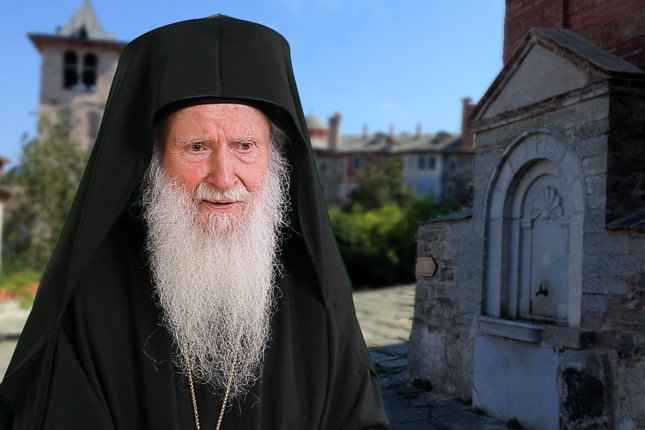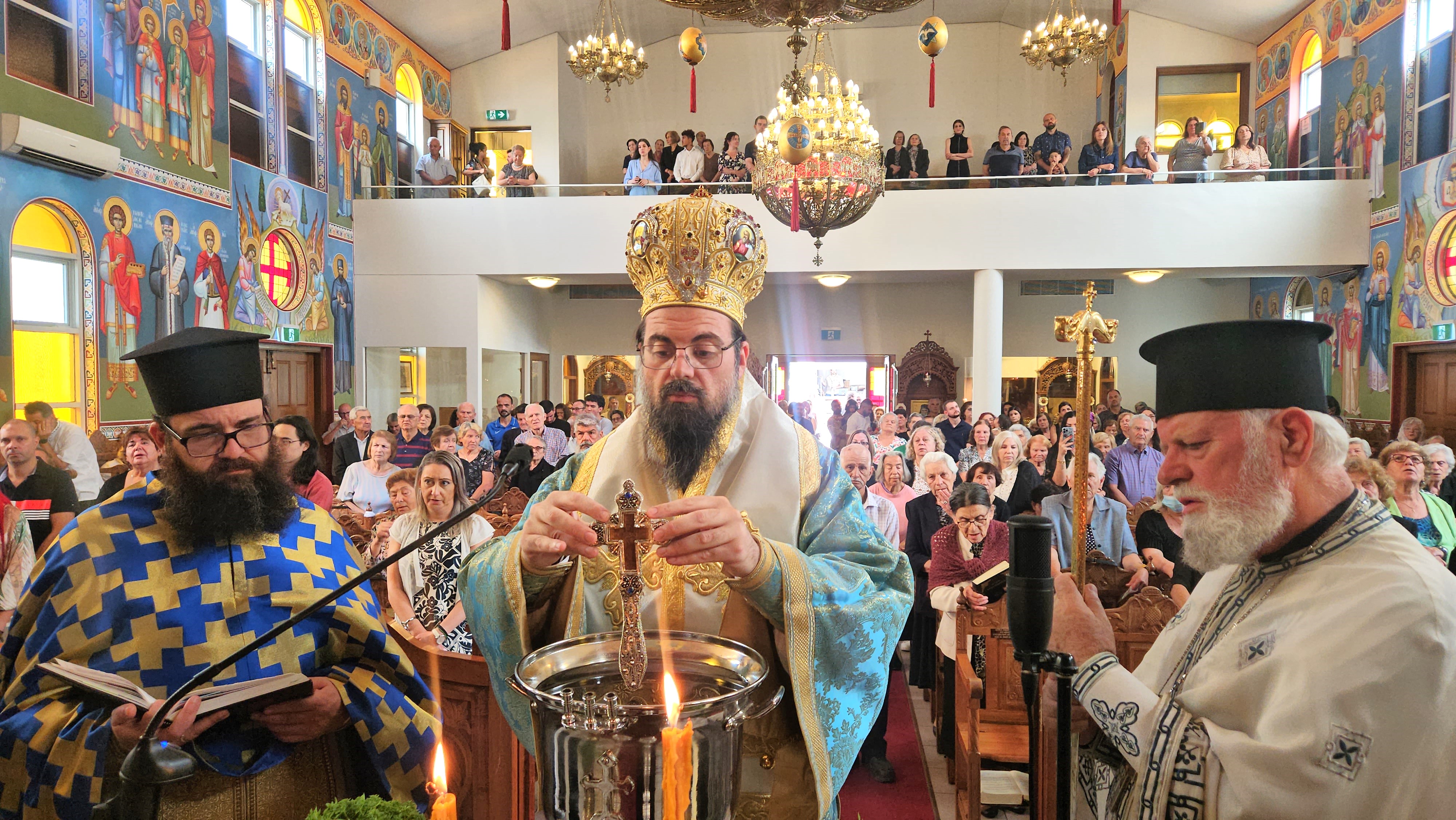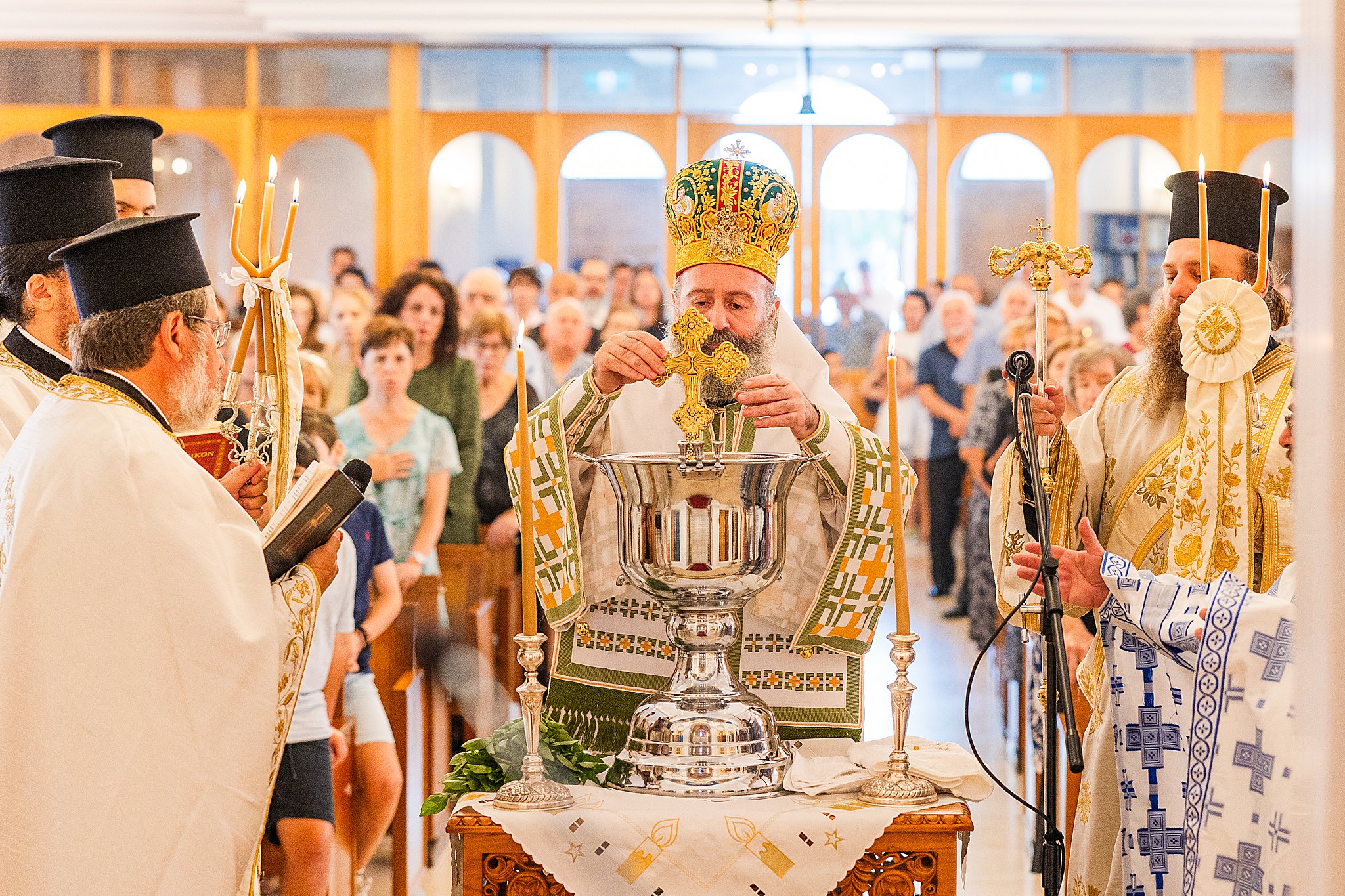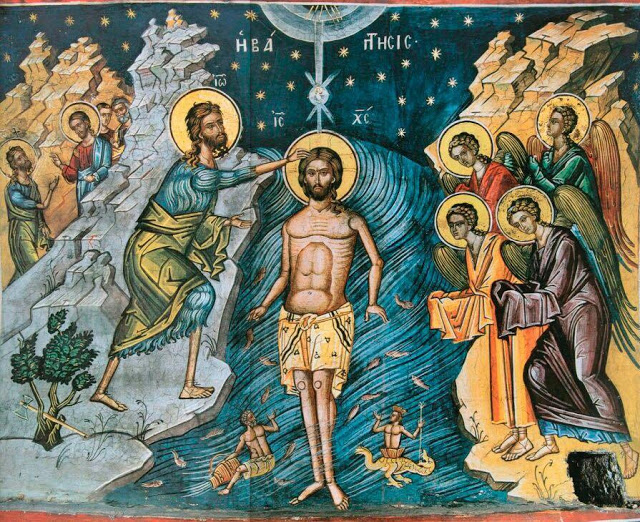Metropolitan Sotirios of Pisidia – “In Peace, let us pray to the Lord” – The Litany of Peace or Great Litany


“In Peace, let us pray to the Lord” – The Litany of Peace or Great Litany (5.12.2021)
After the doxology: “Blessed is the Kingdom of the Father and of the Son and of the Holy Spirit”, with which the Divine Liturgy begins, the Deacon (if there is no Priest) addresses the congregation with a series of short prayers urging them to pray. As St. Paul says, “we do not know what we should pray for as we ought” (Romans 8:26), so the Church teaches us the way of prayer. She teaches us to not use many words, like the Pharisees, who “think that they will be heard” in this way, and whom the Lord condemned (see Matthew 6:7). We are also not to just repeat things mechanically, not paying attention to their meaning. The Deacon guides us into the right way to pray, and he is the one to direct the celebration of the Divine Liturgy “in peace” (with the blessing of the Bishop or Priest).
”In peace, let us pray to the Lord.” It is peace of the soul that leads us to the Divine Liturgy. Without peace we are unable to do what is needed. As long as the heart is peaceful, the mind is able to understand the spiritual meaning of the Divine Liturgy. That is why the Apostle Paul, when writing to the Philippians, wishes the peace of God upon them. This peace, which is incomprehensible to the human mind, is a safeguard for their hearts and thoughts, so that they can be close to Christ (see Philippians 4:7). How can the peace of Christ come? By listening to our spiritual Fathers who advise us to repent. This repentance is the return of man to Christ, who is the peace of the soul. Christ Himself, when we approach Him with repentance, sends us forth, to “go in peace” (Luke 7:50). We are sent to the palace of God (the holy temple) where His peace reigns, to worship Him “in peace.”
To the exhortation of the Deacon “In peace, let us pray to the Lord”, as well as to the others that follow, the praying people respond with three very important words: “Lord, have mercy”. This is a declaration of what they seek from God, as well as what is being asked for from the other believers. The two following prayers in the ”Litany of Peace or ”the Great Litany”, as it also is called, also refer to peace. It leads us to the ”Small Litany”, the ”Litany of Fervent Supplication” and the ”Litany of Completion”, which we will talk about later. The subject Litany of today is called the ”Litany of Peace” due to the fact that in the first three prayers we ask God for peace.
The second petition is as follows: “For the peace from above and for the salvation of our souls, let us pray to the Lord.” What is this “Peace from Above”? The words “from above” are used in the Bible to denote that which comes from the Father of lights, the source of life, joy, peace and all good things. And whatever comes from above, precisely due to its origin, is absolutely perfect, complete, unchanged and everlasting. In other words, it is precisely this divine peace from above which the Angels preached to the shepherds on that Holy Christmas Night: “on earth peace, good will toward men”.
Therefore the “peace from above” is the perfect and complete divine gift which the Father sends to those who believe and love Him, giving humanity eternal joy, peace of mind and peace of heart, which nothing can disturb. We request this precious and supreme gift within the first part of this petition, and then we include in our supplication: “for the salvation of our souls”.
We know that Christ taught us to first ask for “the kingdom of God and his righteousness” (Matthew 6:33) in our prayer. The Kingdom of God is the refuge and salvation of our souls. Truly, what is more precious to us than our souls? The Lord says: “For what shall it profit a man, if he shall gain the whole world, and lose his own soul?” (Mark 8:36). For we know that the heavens will pass away with a great noise, and the elements will melt with fervent heat; both the earth and the works that are in it will be burned up (2 Peter 3:10). This is exactly why we are interested in the salvation of our souls, and why the Church places such importance on the series of prayers in which we ask for this very salvation (which are also included in other Church prayers). As everyone easily understands, it is not enough to just pray for the salvation of our souls, but also to do what we can in this, with the guidance of our Spiritual Father. We ask for the health and protection of our body from various diseases, especially in times of epidemics, with great effort! As soon as we suspect something wrong in our bodies, we rush to the doctor, to prevent further problems. Such work in maintaining our bodies every day! Do we show the same interest in nourishing and strengthening the health of our immortal souls?
My dear brothers and sisters, Let us remember the abuse our Lord Jesus Christ received for our salvation: The beatings, spitting, blows, and finally the nails on the Cross. This remembrance can undoubtedly motivate us to be more diligent in prayer and striving for this salvation of our souls. Amen.
Source: orthodoxianewsagency.gr




